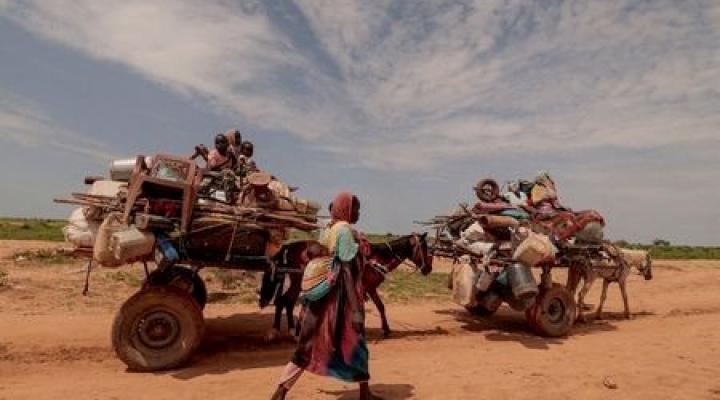UN warns of catastrophic hunger in Sudan in coming months
 Credit: REUTERS/Zohra Bensemra
Credit: REUTERS/Zohra BensemraBy Michelle Nichols Reuters
Nearly five million people in Sudan could suffer catastrophic hunger in parts of the war-torn country in the coming months, United Nations aid chief Martin Griffiths warned the Security Council on Friday in a note seen by Reuters.
Griffiths said acute levels of hunger were being driven by the severe impact of the conflict on agricultural production, damage to major infrastructure and livelihoods, disruptions to trade flows, severe price increases, impediments to humanitarian access and large-scale displacement.
“Without urgent humanitarian assistance and access to basic commodities … almost 5 million people could slip into catastrophic food insecurity in some parts of the country in the coming months,” Griffiths wrote.
He said it was likely that some people in West and Central Darfur would move into those famine conditions as security worsens and the lean season starts. Cross-border aid delivery from Chad to Darfur is a “critical lifeline,” Griffiths said.
Nearly 730,000 children throughout Sudan are projected to suffer severe acute malnutrition, including over 240,000 children in Darfur, Griffiths wrote.
“An unprecedented surge in the treatment of severe wasting, the most lethal manifestation of malnutrition, is already being observed in accessible areas,” Griffiths said.
War erupted in Sudan on April 15, 2023, between the Sudanese army and paramilitary Rapid Support Forces (RSF). The U.N. has said nearly 25 million people – half Sudan’s population – need aid and some 8 million have fled their homes. The U.S. says the warring parties have committed war crimes.
Under a 2018 Security Council resolution, the U.N. secretary-general is required to report to the 15-member body when there is a “risk of conflict-induced famine and widespread food insecurity in armed conflict.”
Since the start of the war in Sudan, Griffiths said, more than 1,000 aid access incidents had been recorded that had “adversely impacted humanitarian operations.” He said 71% were due to conflict or intentional violence against humanitarian assets or aid workers.









